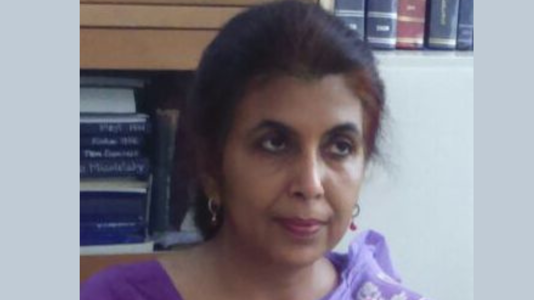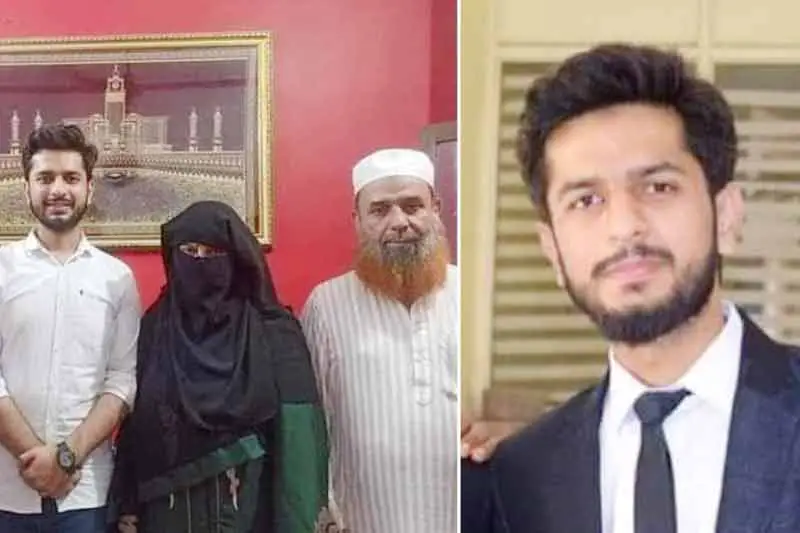Jalalpur Town (Ambedkar Nagar District) , UTTAR PRADESH :
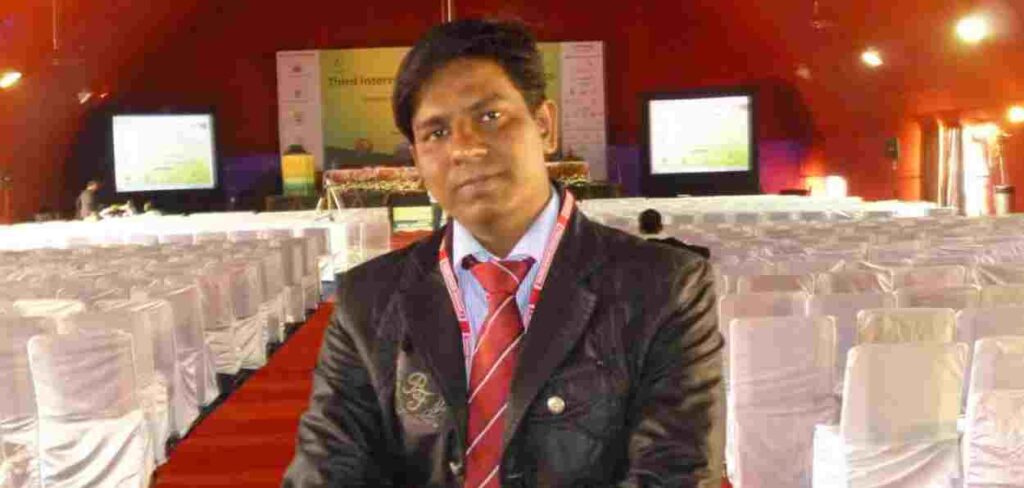
Agricultural scientist Dr. Moinuddin
Dr. Moinuddin’s life is a testimony to the fact that education is the key to changing lives and resolving the present-day problems of societies. This Madrasa-educated agricultural scientist Is an inspiration for those who want to grow in life no matter how many odds are stacked against them.
Dr. Moinuddin was born in Ambedkar Nagar, Jalalpur town, Uttar Pradesh. He joined Madrasa Nida Haq in his town where he completed his primary education. Driven by a desire to study, he continued his education beyond the Madrasa.
He completed his Ph.D. degree from Allahabad (Prayagraj), UP and is today posted as an Associate Professor in the Department of Agricultural Sciences, Sri Guru Ram Rai University of UP.
Not that his journey was smooth. Moinuddin says that during his student days, life was quite hard for him. When he was studying at the NPG College Barhalganj, run by Deen Dayal Upadhyay Gorakhpur University, he was not able to rent out a house. “Wherever I went for renting a house, I was met with refusal, and finally had to live in the Bhimsawa Ashram for two years.”
Thereafter a kind-hearted Hindu family offered him their house for rent.
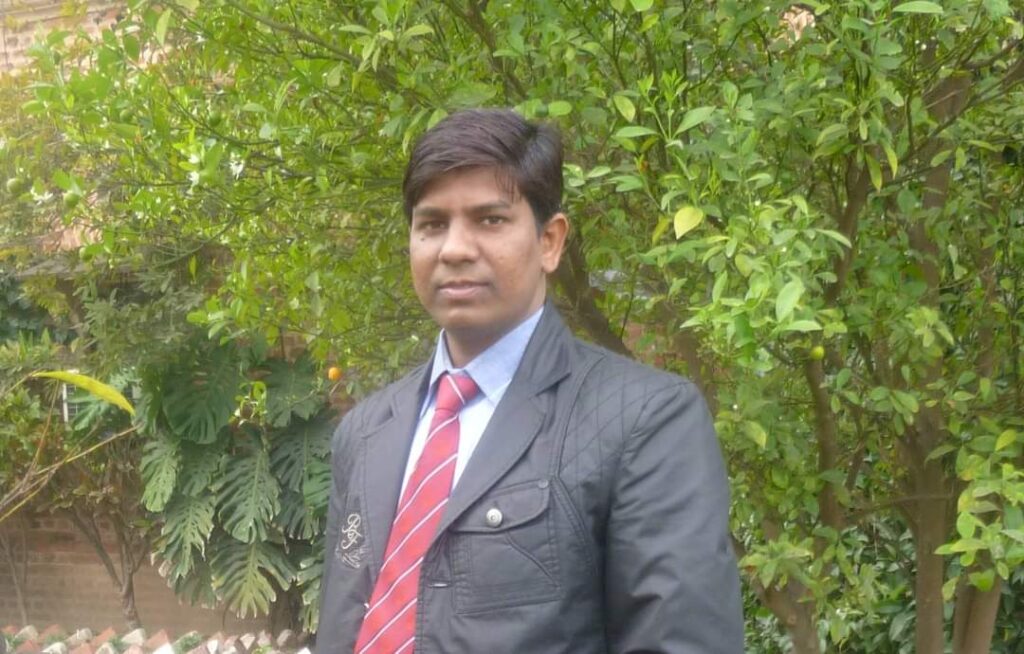
Dr. Moinuddin
Dr. Moinuddin obtained his Ph.D. from Sam Higginbottom Institute of Agriculture, Technology, and Sciences, Allahabad on the topic “Effect of different organic sources of nitrogen on growth, yield and oil content of groundnut”. He also presented his thesis for his MSc degree on ‘Growth and yield behavior of mustard under different sowing methods and sulfur levels’.
Today Dr. Moinuddin is working as a teacher and also continuing his research. He is currently posted as an Assistant professor of Agriculture at Maya College of Agriculture Science and Technology, Dehradun, College of Agriculture and Technology, Dehradun, Uttarakhand.
Dr. Moinuddin received many national and international awards for his work on agricultural research. He was awarded the Young Scientist Award for the first time by the Bioweed Research Institute of Agriculture and Technology, Allahabad, Uttar Pradesh on the occasion of the “15th Indian Agricultural Scientists and Farmers Congress” at Allahabad University in 2013.
He attended the 3rd International Conference on “Global Initiatives in Agriculture and Applied Science for Green Environment”.
He was awarded the Best Agricultural Scientist Award at Shobhat Deemed University, Meerut, Uttar Pradesh in 2021 on the occasion of the 4th International Conference on Global Perspectives in Climate Smart Agriculture Natural Resource Management during the coronavirus pandemic. He was awarded the Outstanding Scientist Award at the Institute of Forestry, Tribhuvan University, Pokhara, Nepal in 2022 on the occasion of the 4th International Conference on Global Efforts on Agriculture, Forest, Environment and Food Security.
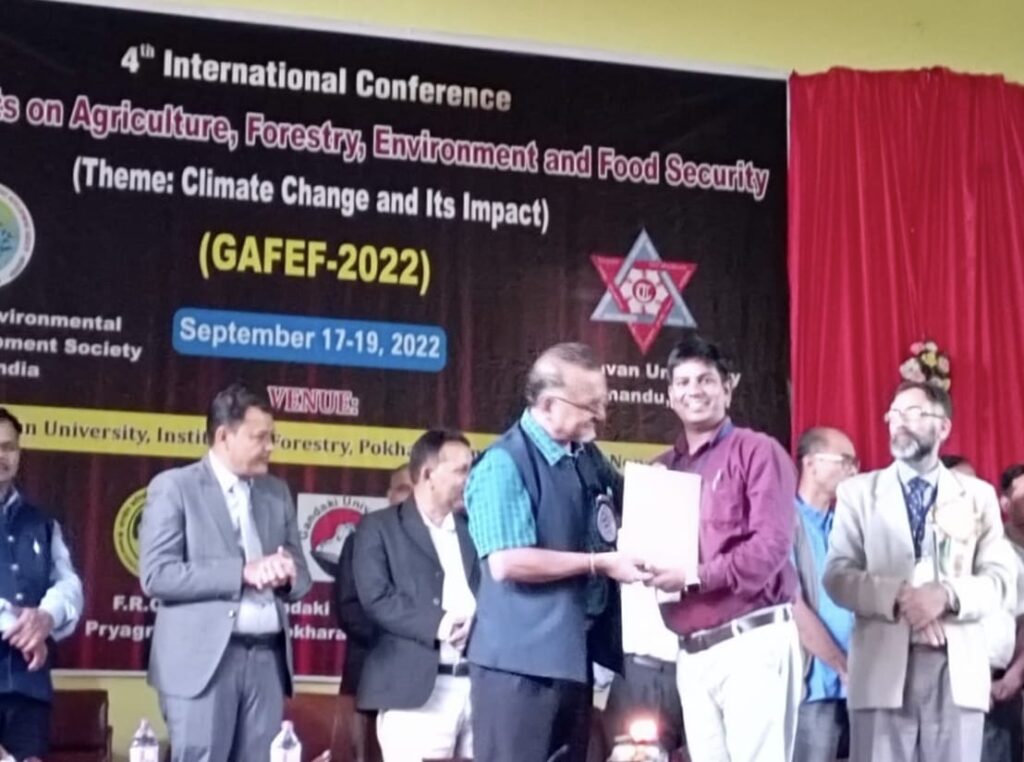
Dr Moinuddin receiving an award
Dr Moinuddin says, “I cannot explain my feelings of gratitude at the respect I have received from people at such a young age. Today if I am considered worthy, it is because of my education. Education can lift anyone from the ground to the sky. Everything was not easy for me when I was getting my education. Rather often have to face adverse environments. But I completed my studies. And today this education made everything suitable for me.”
Dr. Moinuddin is also a life member of the Indian Society of Agronomy, Agronomy Division, Indian Agricultural Research Institute, New Delhi. He is also an active member of the Society of Agronomy, Department of Agriculture, Sam Higginbottom Institute of Agriculture, Technology and Sciences, Allahabad. He is also an active life member of the Agricultural Technology Development Society, Ghaziabad, Uttar Pradesh.
Dr. Moinuddin has participated in several important seminars, and conferences including the National Seminar on “Livelihood Generation in Hill Statistics of India based on Agriculture and Allied Sectors” organized by Uttaranchal (P.G.) College of Technology and Biomedical Sciences, Dehradun, UK in 2014.
Dr. Moinuddin asks the youth “to recognize the value of time and avoid wasting it; always be in good company. Also, those who don’t value their time will be left behind.”
His father Haji Munir Ahmed was the Principal in Mirza Ghalib Inter College Jalalpur and now leads a retired life.
He told me on the phone that his son Dr. Moinuddin was always a studious child. Unlike other children of his age, he did not make many friends and never wasted his time hanging out and having fun.
He was always focused on his education. He says that his early studies were in the madrasa till the fifth grade. “After he completed his matriculation, a friend told me that “your son is very intelligent and extremely sincere in studies”. He advised me to put him in the field of agriculture studies. After this, I discussed it with my son and he also agreed. And with his hard work today, he is a scientist in agriculture and serving the country,” the proud father said.
(The Author is a Lucknow based Freelance Journalist)
source: http://www.awazthevoice.in / Awaz, The Voice / Home> Story / by Irshad Saqafi, Lucknow / April 15th, 2024
